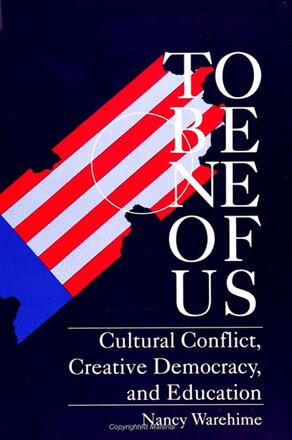
To Be One of Us
Cultural Conflict, Creative Democracy, and Education
Alternative formats available from:
Description
In the context of the growing debate over the relationship between humanities education and the future of liberal democracy, To Be One of Us surveys in dialectical fashion several contemporary humanist thinkers, and analyzes their diverse philosophical positions in relation to John Dewey's claim that "creative democracy" is the "task before us. " The cultural roots of these diverse positions are compared on the basis of their normative conceptions of moral authority.
The first section of the text contains analyses of Allan Bloom's conservative platonism, and of several critiques of his discourse of crisis. The second section is an exploration of Rorty's liberal pragmatism and its implications for education and democracy, and of the critique of Rorty which emanates from his political left. Finally, West's "prophetic pragmatism" is examined, and presented as the philosophical position best suited to "creative democracy," given prevailing social, economic, and political realities.
Nancy Warehime is Assistant Professor of Philosophy at Nebraska Wesleyan University
Reviews
"Anyone who ventures to discuss the moral implications of a given subject matter such as education, is asking for trouble. Much safer, the 'wise' will tell us, to keep distanced from the subject matter, to be reportorial rather than involved, or to let others work on the 'implications. ' Fortunately for her readers, Dr. Warehime rejects such advice. She is not only a map-maker but a participant in what is happening on the terrain she has pictured for us. Not to put too fine a point on it, she takes sides. She sees 'education as an agent of moral development and the formation of a good society,' an approach by no means universally accepted or even respected in some quarters. Out of a jumble of competing moral claims—in a world where those who claim not to be raising moral claims should be most suspect—she arrives at a position of her own, and by the integrity of her investigation is urging her readers to do the same. So while these pages are, formally, an 'academic exercise,' they are more than an exclusively academic exercise. They are (if one can say it without being misunderstood) an exercise of the spirit, of the whole person. " — from the Foreword by Robert McAfee Brown
"I like everything about this book: I like the topic, I like the writing style, I like its scope and depth. But mostly I like the powerful and passionate way in which the humanities are placed at the heart of education and culture. By emphasizing the political nature of the debates within the Humanities, this book acknowledges that the choices we make about meaning and value have practical consequences, and that these consequences have as much to do with who has power in our society as they do with morality per se. " — Philip L. Smith, The Ohio State University